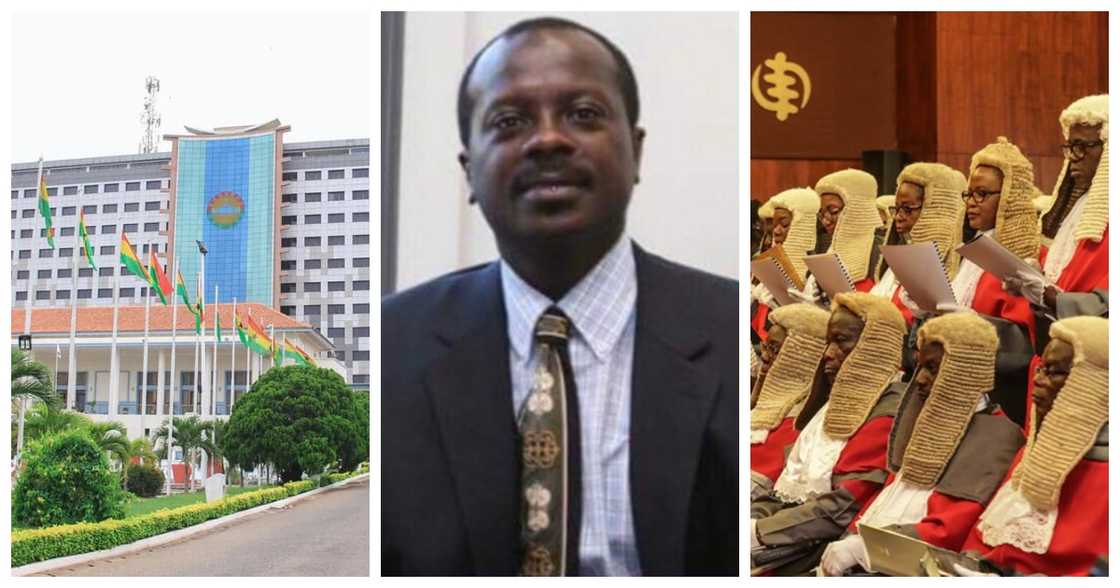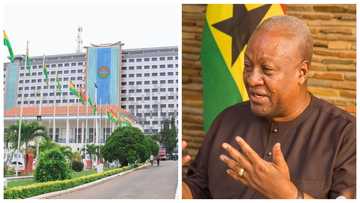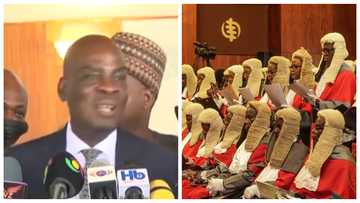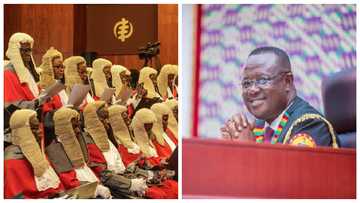Prof Asare ‘Schools’ Supreme Court Judges After Ruling That Allows Deputy Speakers To Vote While Presiding
- Prof Stephen Asare has criticised the Supreme Court's decision that deputy speakers presiding as Speakers of Parliament can vote
- According to the US-based lawyer, the decision is a clear interference in the standing orders of Parliament
- It is the opinion of the respected legal practitioner that both the courts and Parliament are co-equal branches of government
PAY ATTENTION: Click “See First” under the “Following” tab to see YEN.com.gh News on your News Feed!
Prof Stephen Asare has published a didactic opinion on the contentious decision by the Supreme Court yesterday that deputy speakers presiding in Parliament do not lose their right to vote.
The respected US-based private legal practitioner is of the opinion that the law and custom or standing orders of Parliament is a distinct body of law and should not be interfered with by the court.

Source: Facebook
“Parliament and the Courts are coequal branches of government and neither can tell the other how to run its affairs,” he published on Facebook a few hours after the controversial ruling on Wednesday, March 9, 2022.
Download YEN's news app on Google Play now and stay up-to-date with all major Ghana news
Ghana’s Supreme Court ruled that a deputy speaker, while presiding over proceedings in Parliament, has the right to vote on matters.
The apex court said the First Deputy Speaker and the Second Deputy Speaker can be counted as part of the quorum for decision-making in the Parliament even when they are acting temporarily as Speakers.
A seven-member Supreme Court bench ruled unanimously that upon a true and proper interpretation of Article 103 and 104 of the 1992 Constitution, a deputy speaker who assumes the temporary role as Speaker of Parliament does not lose his right to take part in decisions.
The decision has elicited many negative comments from a section of the public including academics and legal practitioners.
The Minority in Parliament has already condemned the ruling as biased towards the government’s push to pass the controversial E-Levy.
In the view of Prof Asare, known popularly as Prof Azar, if Parliament, in its wisdom decides that an MP acting as Speaker temporarily should not take part in debates, vote, or should not caucus with his party on a matter pending while he presides, it is not for any Court to inquire into it.
“This, of course, is not saying that Parliament can act ultra versus the Constitution (see, for instance Asare v AG & Amoateng).
“Rather what this means, and as Justice Sowah explained decades ago, is that “in so far as Parliament acts by virtue of the powers conferred upon it, its actions within Parliament are a closed book.”
“And under Article 110, the Constitution clearly empowers Parliament to regulate its own procedures through standing orders,” Prof Asare surmised.
The astute lawyer stressed further that when the Constitution stated that “the Speaker shall have neither an original nor casting vote,” it must be construed broadly to include the deputy speakers acting temporarily as a Speaker.
"Overruling the standing order that requires the Speaker Pro Tempore to act as an unbiased umpire with no vote makes a mockery of Tuffuor and could very well be a Pyrrhic victory of style over substance," he said.
Mahama Reacts To Supreme Court Ruling On Deputy Speakers’ Vote: "Shocking But Not Surprising"
Former President John Dramani Mahama has joined growing critics of a ruling yesterday by the Supreme Court that deputy speakers presiding in Parliament do not lose their votes.
The ruling on Wednesday, March 9, 2022, means that a deputy speaker, while presiding over proceedings in Parliament, has the right to vote on matters and be counted as part of the quorum for decision-making in the House.
The seven-member Supreme Court bench ruled unanimously that upon a true and proper interpretation of the relevant parts of the 1992 Constitution, a deputy speaker who takes up the role of Speaker of Parliament temporarily has the right to take part in decisions.
Our manifesto: This is what YEN.com.gh believes in
Source: YEN.com.gh




